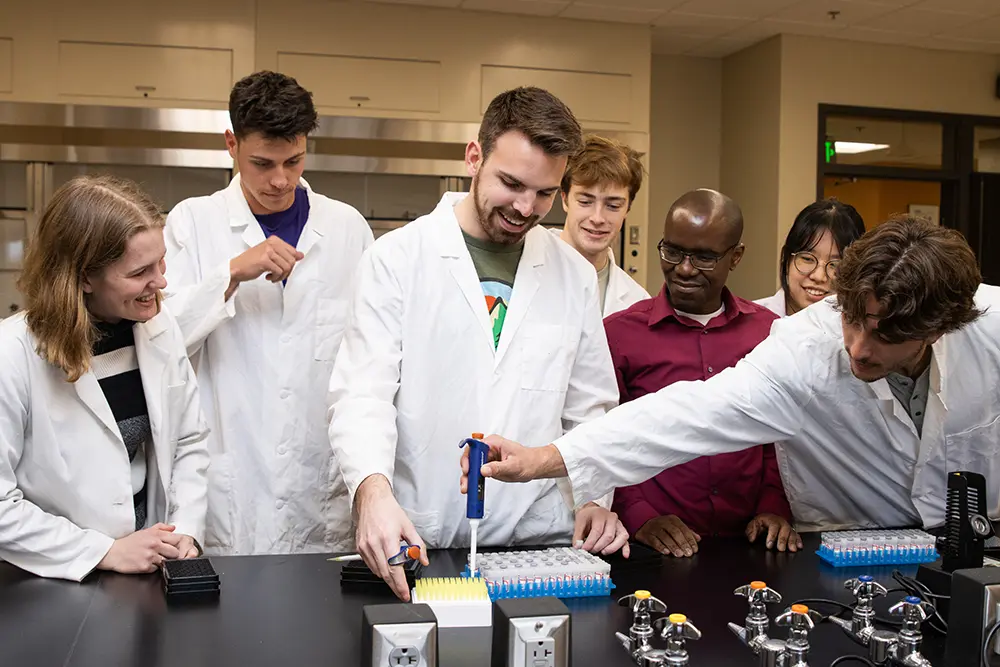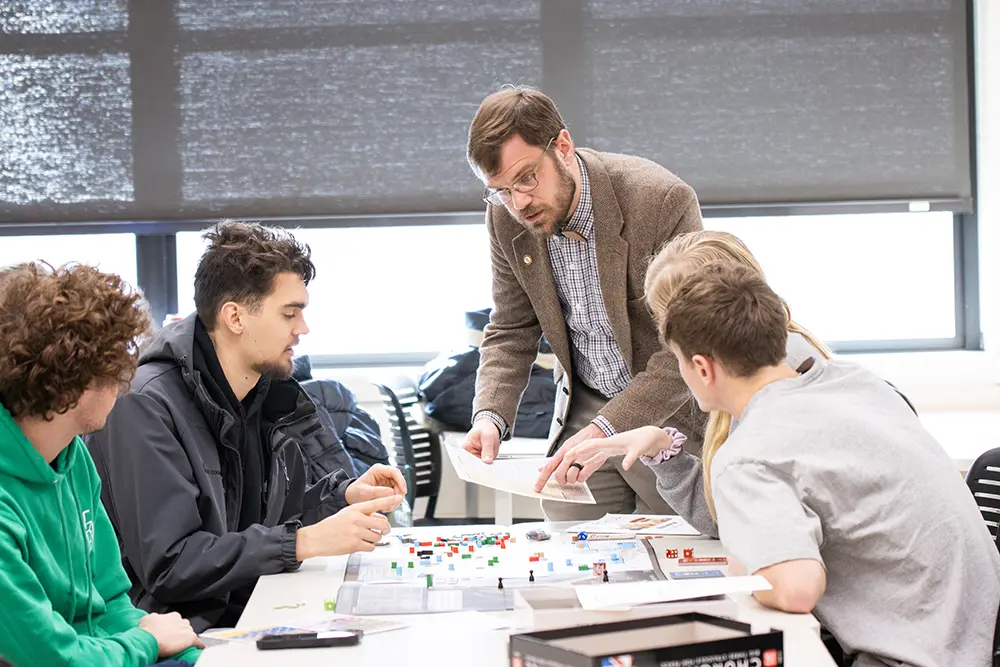-
-
- Financial Aid
- Financial Aid
- Scholarships
- Loans
- Grants
- Federal Work Study
- Additional Resources
-
At Taylor, our process of integrating faith with learning reflects the reality that all learning is intrinsically connected to a developing faith. As a Christian educational community, we work according to the presupposition that learning processes necessarily influence the central practices of the Christian life. Therefore, as life-long learners we strive to model the type of character that reflects positive intellectual and spiritual development in accordance with the Christian faith as defined in scripture.
The idea of education is inherently connected to notions of community and wisdom. Indeed, education is the process by which a community works to inculcate that which it considers wise. Our pursuit of knowledge is expressed by an understanding of philosophy (philosophia) as the “love of wisdom,” which for the Christ-follower is theologically based upon “the fear of the Lord” (Prov 1:7, 29; 2:5; 9:10; 15:33). The love of wisdom reflects Christ’s admonition, reiterating the Shema (Deut 6:5; cf. 11:181–21; Num 15:37–41), to “Love the Lord your God with all your heart and with all your soul and with all your mind” (Matt 22:37; Mark 12:30; Luke 10:27).
From this perspective, we who make up Taylor University desire to live out a Biblically based view of the world, and we presuppose that education is a means of discovering God’s truth and the wise use of his truth continuously until the day when we are united with Christ and when we will know just as we have been fully known (1 Cor 13:11–12). Our community aims to teach that which needs to be known and evaluated as wisdom that fosters life to the full in Jesus Christ (John 10:10). We strive to develop formatively by training our intellects, wills, and affections so that we, as Jesus’ disciples may become faithful and competent stewards who act in accordance with the values and purposes of God in all things (Rom 12:2; cf. Matt 13:52; Luke 6:40; 1 Tim 4:6; Heb 5:14; 12:11).


The elements of Taylor’s philosophy of education have been expressed in our history as the university “Anchor Points.” These were articulated by one of our most visionary educational leaders, Dr. Milo Rediger. They form the basis of Taylor University’s educational model, with each Anchor Point corresponding to specific characteristics cultivated not only in a student’s major areas of study but also in the Foundational Core curriculum:


By adhering to the principles represented in these Anchor Points, we aspire to create an academic culture that invites students to engage in the process of ongoing stewardship. Students are encouraged to develop the skills of critical thinking, problem solving, decision-making, creativity, and scientific and aesthetic literacy. Thus, they are given the opportunity to not only steward their gifts as they engage with the world around them but also to gain self-awareness and understanding. Such learning processes are both liberating and restraining, allowing for self-evaluation, correction, and growth in the pursuit of wisdom and Christian maturity.